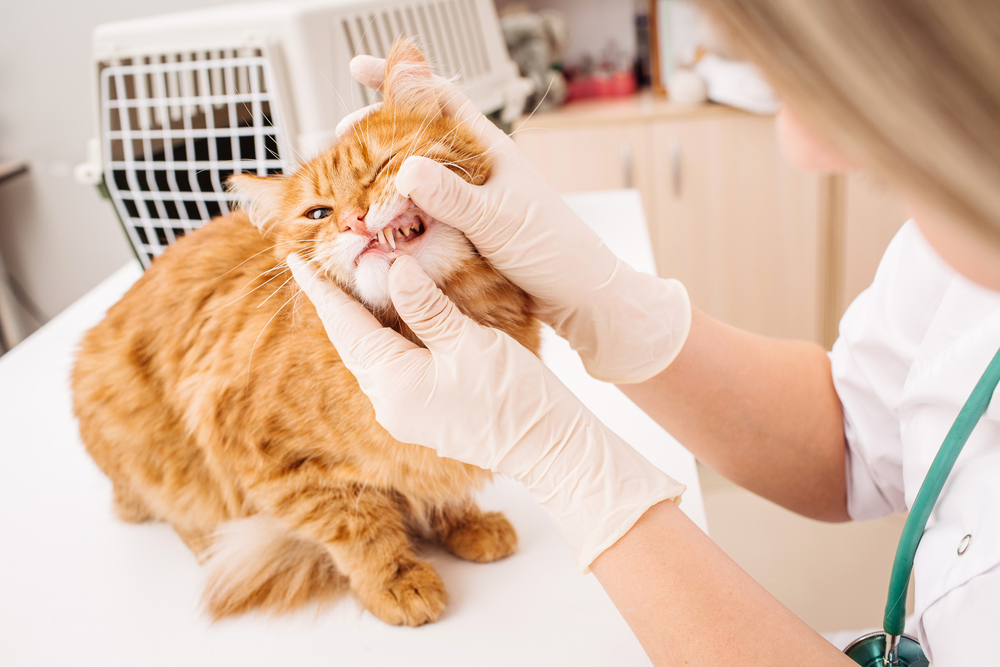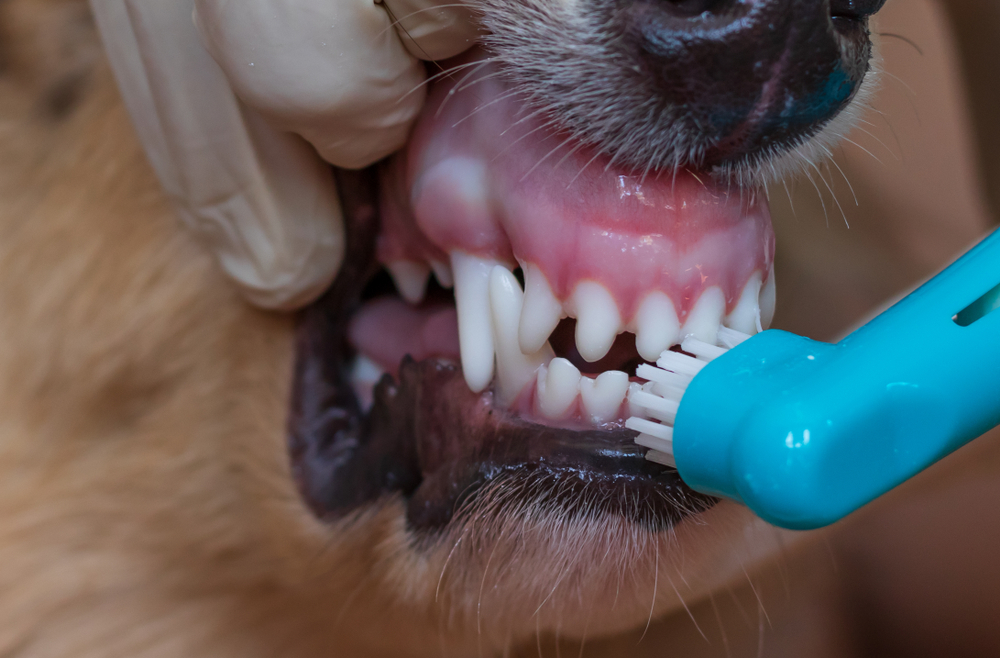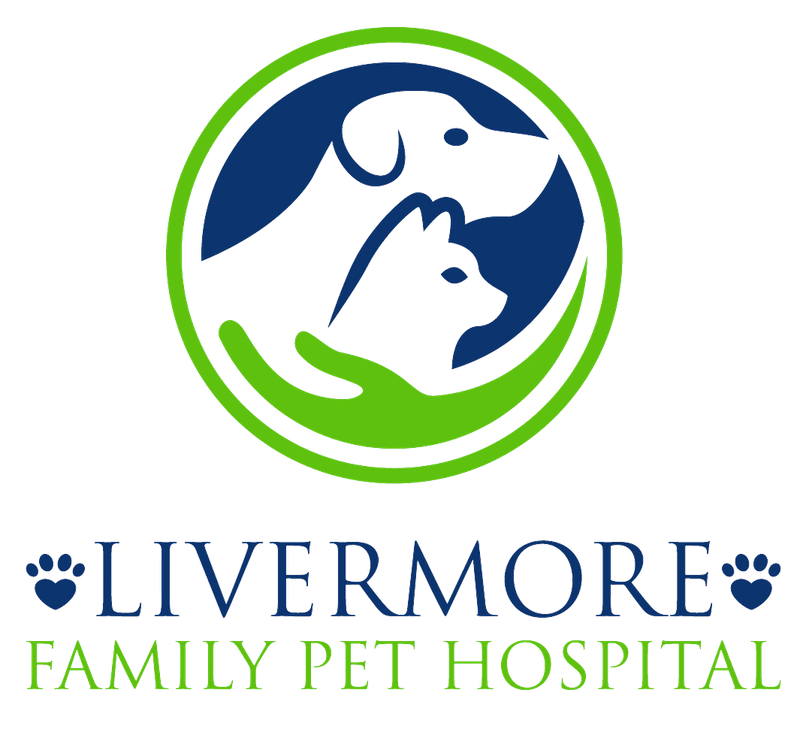
Dental disease is one of the most common medical conditions seen by veterinarians, and it’s easy for pet owners to miss the signs. For instance, pet owners often jokingly dismiss their pets’ foul breath, but this can be an early sign of dental disease. February is National Pet Dental Health Month, and our team at Livermore Family Pet Hospital thinks it’s the perfect time to help you learn how to maintain your pet’s dental health.
What is dental disease in pets?
This progressive disease is caused by oral bacteria that damage your pet’s gums, teeth, and supportive tooth structures. Soon after your pet eats, sticky plaque forms on their teeth and it can harden quickly into cement-like tartar, trapping bacteria in and around the gumline and tooth roots.
Many people assume dental disease mainly affects senior pets, but, by the age of 3, most dogs and cats have some degree of dental disease. Without preventive care or treatment, dental disease can lead to loose teeth and infection, and cause your pet significant pain.
Dental disease can cause problems that extend far beyond your pet’s teeth. These problems include:
- Kidney, heart, and liver issues — Bacteria from plaque and tartar buildup can leak into your pet’s bloodstream, causing damage to these essential organs.
- Tooth-root infections — These infections most commonly develop in the large, three-rooted carnassial teeth on the upper jaw.
- Under-eye swelling — Tooth-root abscesses can cause a pus-filled swelling below the eye that may be mistaken for an eye or facial problem.
What are dental disease signs in pets?
Unfortunately, the first signs of dental disease in pets are easy to miss, making it all the more important to inspect their teeth and mouth regularly. In addition to bad breath, the following signs may indicate dental problems:
- Brown or yellow tartar buildup on the teeth
- Red, swollen gums
- Broken or loose teeth
- Excessive drooling
- Decreased appetite
- Swallowing food whole, instead of chewing
- Leaving broken crumbs around their bowl after eating
- Taking food from their bowl and eating it somewhere else
- Blood in their water bowl or on their toys
- Shying away from being touched near their face
If you recognize these signs, schedule a dental evaluation with your veterinary team so they can assess your pet’s dental health and address any problems.
How can I take care of my pet’s dental health?

Prevention is key when it comes to protecting your pet from dental disease. Regularly brushing your pet’s teeth is the best way to keep them healthy. Daily brushing is preferred, but brushing at least a few times a week is helpful. Use the following tips to start a toothbrushing routine with your pet:
- Choose a child-size toothbrush or finger brush, and a veterinary-approved, flavored toothpaste. Avoid human toothpaste because it contains fluoride that is unsafe for pets if swallowed.
- Let your pet lick the flavored toothpaste from your finger, and follow up with a treat.
- Rub your finger over your pet’s tooth surfaces, then repeat with the toothbrush. Focus on the outer surfaces only—your pet’s tongue will take care of the inner surfaces.
- Reinforce the teethbrushing by praising your pet, giving them a special treat, or engaging with them in a fun activity afterward.
Besides an at-home dental care routine, your veterinarian can recommend dental products and treats to supplement your pet’s teethbrushing. Your pet also should have a professional dental examination every year to look for early signs of dental disease. A professional cleaning may be recommended, along with X-rays that can reveal problems under the gumline.
A complete professional pet teeth cleaning will include:
- Scaling tartar from the tooth surface, above and below the gumline
- Polishing each tooth to remove microscopic etchings created by scaling where bacteria can adhere
- Probing the gumline for pockets that indicate periodontal disease
- Irrigating below the gumline to flush away bacteria and debris
- Rinsing with an antimicrobial solution
Your pet’s dental health is a critical part of their overall wellbeing. To help you maintain your pet’s dental health, we are offering 50% off whole-mouth dental X-rays for any dental booked during February, even if the procedure is booked for future months. Contact our Livermore Family Pet Hospital team to schedule your pet’s dental cleaning, and take advantage of this limited-time offer!

